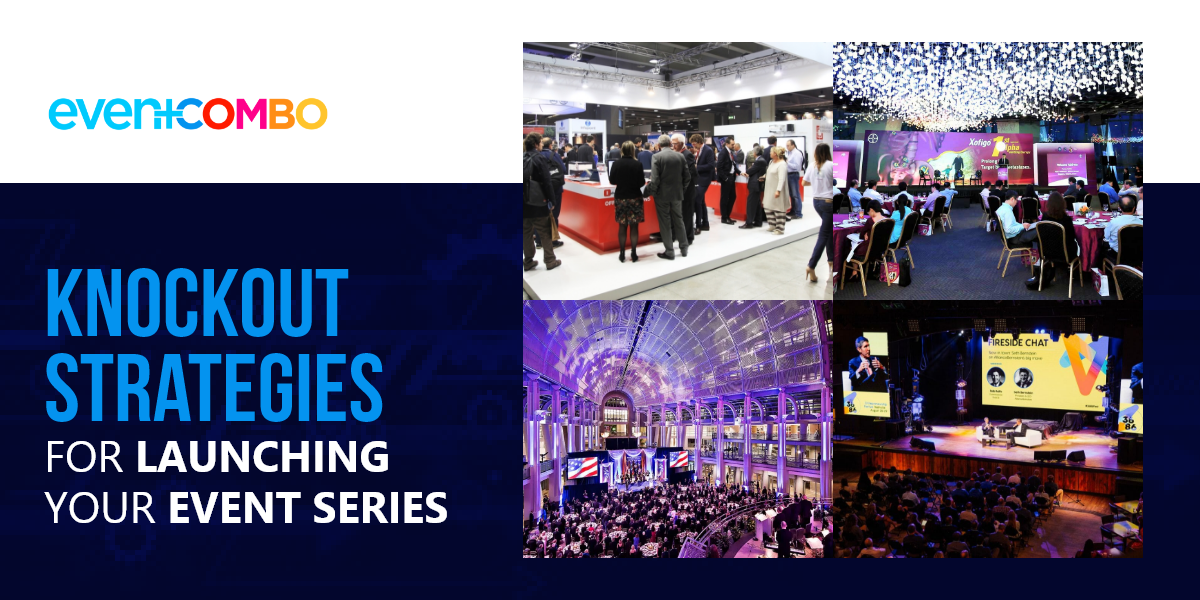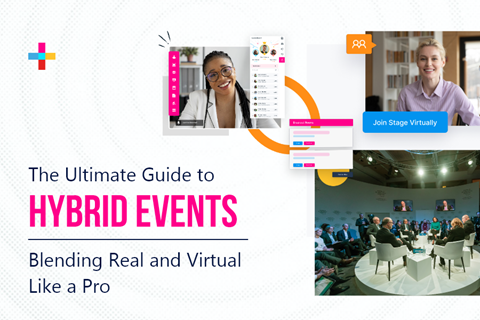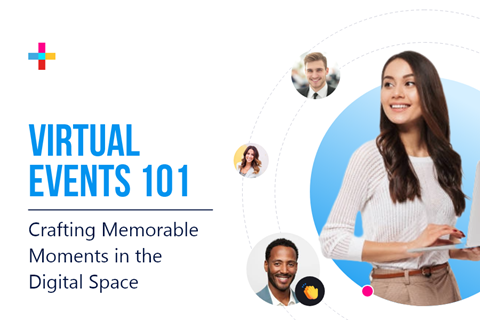7 Effective Tips for Kicking Off Your Event Series

Aug 27, 2024 Praggya Joshi
Events remain one of the most effective strategies to expand your brand's reach, offering the opportunity to grow your client base. However, there are numerous ways to maximize their impact and boost your returns.
Organizing event series gives you the freedom to share your thought leadership and expertise on different topics in detail, boosting brand credibility. With that, you never need to worry about fitting a truckload of content in a few hours.
Organizing a successful event series needs more thoughtful planning and prudence. In this blog, we'll lay down the different ways you can kickstart and benefit from a successful one.
What Are Event Series?
Event series are a set of events based on a particular topic and are linked to each other by a common thread. You can organize an event series for corporate events like conferences or just for brand promotion. It is essential to plan a series for a highly targeted group of audience that you know will benefit from it.
Event series is different from recurring events. The latter are events that take place periodically and attendees are aware of their details. In contrast, an event series consists of several events, with each one offering fresh content on different topics that are a part of the overarching theme. The events in the series have consistent imagery and branding. The series' names and descriptions also emphasize a sense of connection.
This kind of event can be a series of podcasts or webinars. It can also be a small in-person event for a specific group of people.
Why Run Event Series?
A multi-event campaign or event series is an exceptional way to promote your brand and build deeper relationships with your audience. Relationship building has acquired the center stage today and studies show that client-centric companies are 60 percent more profitable than those that do not focus on customers. Combine this with intense competition and you will soon realize the importance of strategic relationship building.
Event series help brands and marketers achieve this goal. Look at it like a strategy to nurture your audience and prompt their loyalty. By creating appealing and diverse content that spans multiple events, you can engage your prospects long before the event series, during, and after it ends. In addition, the content of the event series can be repurposed in various ways and will help you put your brand in front of your audience's eyes.
7 Insider Tips to Launch Your Event Series Like A Pro
1. Decode Attendee Demographics & Preferences
Before planning an event series, identify your target attendees and the message you want to convey. This will help you develop an effective content strategy that resonates.
Look closely at your current customers and the previous attendees. Learn about their characteristics like age, race, gender, lifestyle needs, education level, and the values they prioritize. You can also scout the audience of your competitors and supplement the information with insights from your industry experts.
The more attendee information you have, the better customer personas you will be able to create. These represent your ideal customers whose needs and interests should be considered when planning in-person or virtual event series. Knowledge of attendee demographics and preferences will also guide your decisions for venue selection, event agenda, and the choice of speakers.
Eventcombo's all-in-one event management solution gives you quick access to pre- and post-event attendee data so you can create exceptional experiences while keeping in mind the pain points of your guests.
2. Create Pre-event Buzz on Social
Event promotion on social media is imperative to maximizing attendance. Almost 40% of event marketers face challenges in reaching out to new attendees. This is where certain techniques come in handy, easing the process of promoting before the actual event happens which includes:
- Spread awareness through creative hashtags on social media platforms like Facebook, Twitter, and LinkedIn.
- Post content about your event series and answer questions about it on social media pages.
- Use your logo in all your marketing materials to brand the event series.
- Start email marketing for the event series. Create compelling emails with multimedia that prompt people to register.
3. Use Press Release to Raise Awareness
A targeted press release, shared with targeted audiences consisting of motivated vendors and buyers in your domain will help you maximize your event's impact. After writing and distributing your PR to media outlets, put them up on your brand’s website. You can also include them on your event management platform’s website.
Keep the PR content focused on the target vendors. Don't try to appeal to a broader audience here.
4. Spark Interest with Unique Event Page
Create an event page on Facebook and LinkedIn to make your event series more accessible. A great advantage of doing so is that you can share compelling visuals and information about the event series in real-time, thus maximizing engagement and reach. Share updates, announcements, and changes so attendees stay informed throughout the time leading up to the event.
Use the groups to interact with your followers and create or maintain a community. Techniques like polls, Q&A sessions, and live streams help you craft a genuine online connection with potential guests. It also forges a sense of belonging and encourages them to attend your event series.
5. Leverage your Event Website
A visually appealing event website with an easy registration process and up-to-date information is a valuable resource for your attendees. It is essential because today, most people search on the internet for events. An event website is a place where you can show off your event series, the activities planned and provide answers to common concerns.
It also allows organizers to create a connection between events. You can post overviews of the different events on the website and highlight the novelties of each one.
Also, a major benefit of having an event website is the access to analytics. You can find information about your traffic, its sources, number of conversions, user behavior, and data on specific actions users take. This information can be used to gain information about how visitors engage with your content and website.
You can create feature-rich event and registration websites easily with Eventcombo's website builder. Equipped with Google Analytics 4, it gives you comprehensive data about your visitors so you can target them better than before.
6. Give Your Event Series a Theme
The aim of an event series is not to host disparate events that don't gel well with each other. Rather, the events function as subsets of a main field. This keeps them connected and keeps attendees engaged and informed.
Guests should never feel as if they are attending a totally different event when they revisit. They should feel like they are coming to expand their knowledge or seek opportunities in different areas connected to a specific topic. This will make the event experience more relevant and enjoyable for your audience. They will, leave them satisfied with what they learned and understood.
A connection between events should also be reflected in your marketing efforts. Do not promote different events in different ways. Show them all as parts of a singular event and highlight the different speakers who will cover different aspects of the theme on each day.
7. Simplify Event Series Planning
Planning an event series includes managing a ton of big and small tasks. From registration, ticketing, and sending emails to choosing a venue, and selecting speakers; there's a lot to handle. With the help of effective event management software, you can address multiple aspects of planning.
The platforms help you in the tasks above and have tools like mobile apps that facilitate networking features to promote the event series and analyze its performance. With a digital platform, you can handle all aspects of event series planning and analysis effectively, without needing to go anywhere else.
Summing up
Launching an event series may seem like a daunting task, particularly for less experienced planners. But the trick lies in creating a solid foundation first. The tips mentioned above will serve as your bedrock for kickstarting an event series that your attendees find meaningful. Modify them according to your audience's needs, and brand.
To make your event planning tasks easier, use our all-in-one event management solution. Book a demo here.
close








